“As the lifeblood of the economy , the banking industry not only has to manage traditional financial risks but also needs to proactively identify, measure and control risks while taking advantage of opportunities related to ESG (environmental, social and governance standards) in lending, investment and internal operations. Integrating ESG into business strategy and internal governance will create an important foundation to help the banking system develop sustainably, enhance competitiveness and effectively contribute to the goal of green and inclusive growth.”
That was the comment of Deputy Governor of the State Bank of Vietnam Pham Thanh Ha at the seminar "Practicing Sustainable Development Reporting in the banking sector with AI solutions" organized by Banking Times in collaboration with the Association of Chartered Certified Accountants (ACCA) on May 21 in Hanoi .
Still many challenges
Speaking at the opening of the seminar, Deputy Governor of the State Bank of Vietnam Pham Thanh Ha said that in recent times, implementing the Government's determination to achieve sustainable development goals, the State Bank has implemented many specific policies and action plans to promote sustainable development in the banking sector.
“The State Bank assigns the task to commercial banks to integrate and include sustainable development tasks, solutions and targets into their strategies, programs, business plans and operational processes, and at the same time encourages credit institutions to develop and publish Sustainable Development Reports and publish their organizations' 'green' commitments, ” the Deputy Governor emphasized.
In addition, through the Green Banking Development Project, the State Bank promotes training, raises awareness of green credit and periodically organizes seminars and workshops to disseminate experiences and environmental, social and governance (ESG) standards. Activities such as cooperation with ACCA and GIZ to organize seminars and in-depth training demonstrate the State Bank's clear commitment to guiding and supporting credit institutions to practice sustainable development reporting according to international standards.
Regarding outstanding credit for green sectors of the banking system, there has been rapid growth in both scale and speed: By March 31, 2025, 58 credit institutions had generated outstanding green credit with outstanding loans reaching over VND 704,244 billion, an increase of 3.57% compared to the end of 2024, accounting for 4.3% of total outstanding loans of the whole economy, focusing mainly on the following sectors: Renewable energy, clean energy (accounting for over 37%) and green agriculture (over 29%); the average growth rate of outstanding green credit reached over 21.2%/year in the period 2017-2024, higher than the credit growth rate of the whole economy.
Despite the positive results, the State Bank's leaders also acknowledged that the practice and publication of Sustainable Development Reports in Vietnam, especially in the banking sector, is still in its early stages. Challenges in the legal framework, resources, data analysis capacity, and especially the way to collect and process information effectively and transparently remain significant barriers.
“Therefore, the application of AI and modern digital technology is a potential solution to the above problems. AI not only helps automate data collection and synthesis, but also supports in-depth analysis, trend detection, and recommendations to improve reporting quality and sustainable management efficiency,” the Deputy Governor affirmed.
In more detail, Mr. Tran Anh Quy - Head of State Policy Credit Department, Department of Credit for Economic Sectors, State Bank of Vietnam said that the difficulties of credit institutions when implementing the Sustainable Development Report are high investment costs and hiring consultants to develop the report. The number of highly qualified and specialized staff is still limited. Moreover, there is a lack of legal framework to build a green investment portfolio and sustainable development of commercial banks.

From a commercial banking perspective, Ms. Ngo Thuy Phuong, Deputy Head of Strategy and Secretary of the Board of Directors of Vietcombank, commented that the lack of a national green classification framework and a unified set of ESG standards are key obstacles.
Ms. Phuong also pointed out that there is currently no clear guidance on the content, methods and processes for verifying the accuracy of sustainability reports provided by businesses. Therefore, banks still lack the necessary tools, data and skills to fully assess non-financial factors, especially ESG criteria.
AI is a strategic 'assistant'
In the context that banks are gradually implementing sustainable development reporting practices, technology, especially artificial intelligence (AI), is considered a key factor to improve the efficiency and quality of reporting.
In his speech titled “Global Standards and the Role of AI in Banking Sustainability Reporting,” Mike Suffield, Director of Policy and Insights, ACCA Global, highlighted the transformative potential of AI, while warning of risks such as data bias, limited algorithmic transparency and “greenwashing.”
However, Mr. Mike Suffield also recommended that AI can support the disclosure of sustainable development information in a more effective, meaningful and rigorous way, but it must be used ethically, transparently and in accordance with international frameworks...
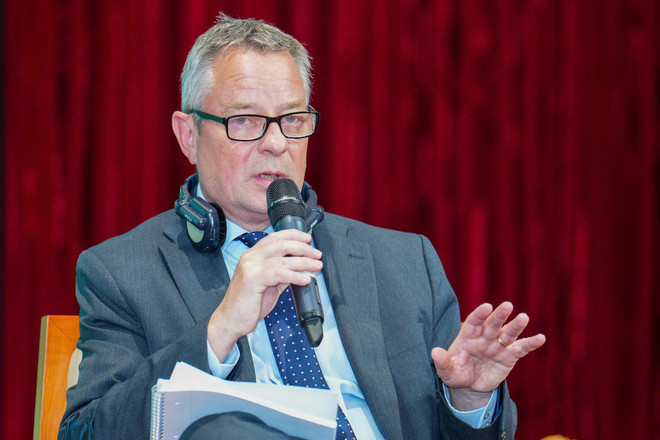
Mr. Nguyen Quang Thuan, Chairman of FiinRatings, also stated that without AI and technology, transformation would not be possible and that manual work in this field is not feasible.
Ms. Ngo Thuy Phuong also believes that the banking industry has many advantages in applying AI to sustainable development reporting thanks to institutional preparation, international support and increased awareness within the system. She believes that AI can play an important role in building, improving the quality and transparency of reports.
From a technology solution perspective, Dr. Le Hung Cuong - Deputy General Director of FPT Digital, FPT Corporation said that the major challenges for businesses today are that ESG data is still scattered, lacks standardization, and the reporting process is manual, time-consuming and prone to errors.
To solve this problem, FPT has developed integrated AI solutions such as VertZero, which comprehensively digitizes the process of collecting ESG data, calculating, managing, generating emissions reports, and tracking progress towards commitments, thereby contributing to the completion of enterprises' ESG reports.
However, for AI to be truly effective in supporting sustainable development reporting, experts emphasize that there needs to be synchronization between the legal framework, data systems and human resources. In particular, the top priority is to soon issue a set of national green classification standards - an important foundation for integrating environmental and social factors into the banking data system and effectively deploying technological solutions./.
Source: https://www.vietnamplus.vn/ung-dung-ai-trong-phat-trien-ben-vung-co-hoi-tiep-can-von-xanh-cho-ngan-hang-post1039823.vnp


![[Photo] Prime Minister Pham Minh Chinh receives Rabbi Yoav Ben Tzur, Israeli Minister of Labor](https://vphoto.vietnam.vn/thumb/1200x675/vietnam/resource/IMAGE/2025/5/21/511bf6664512413ca5a275cbf3fb2f65)
![[Photo] Scientific workshop "Building a socialist model associated with socialist people in Hai Phong city in the period of 2025-2030 and the following years"](https://vphoto.vietnam.vn/thumb/1200x675/vietnam/resource/IMAGE/2025/5/21/5098e06c813243b1bf5670f9dc20ad0a)


![[Photo] Determining the pairs in the team semi-finals of the National Table Tennis Championship of Nhan Dan Newspaper](https://vphoto.vietnam.vn/thumb/1200x675/vietnam/resource/IMAGE/2025/5/21/eacbf7ae6a59497e9ae5da8e63d227bf)
![[Photo] Prime Minister Pham Minh Chinh attends the groundbreaking ceremony of Trump International Hung Yen Project](https://vphoto.vietnam.vn/thumb/1200x675/vietnam/resource/IMAGE/2025/5/21/ca84b87a74da4cddb2992a86966284cf)
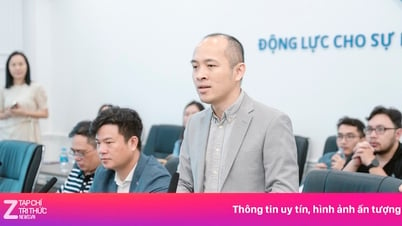





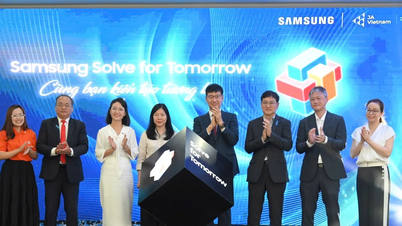








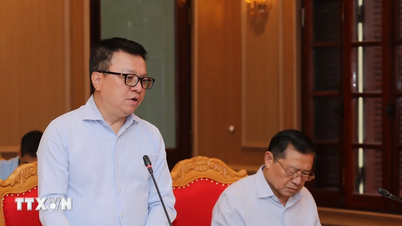






















































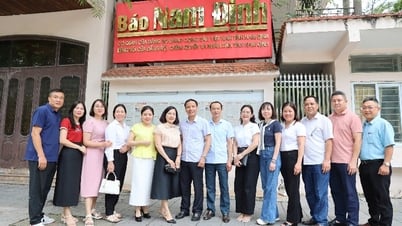
















Comment (0)